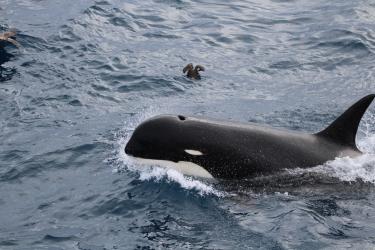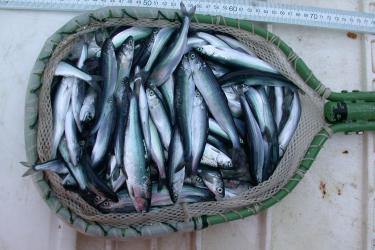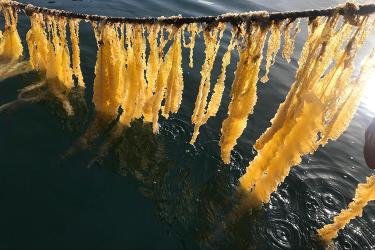A Changing Climate
Changing climate and oceans are affecting the nation’s valuable marine life and the many people, businesses, and communities that depend on them. Warming oceans, loss of sea ice, rising seas, extreme events, and acidification are impacting the distribution and abundance of species and the structure of marine and coastal ecosystems in many regions. These impacts are expected to increase and there is much at risk.
Expected Changes in the Arctic
The need to take action is clear. Climate change in the Chukchi and Beaufort Seas is driving rapid decreases in summertime sea-ice extent, resulting in:
- Potentially poleward movement of marine species from the adjacent Bering Sea ecosystem vital to commercial and subsistence fisheries
- Changes in the migratory phenology and distribution of bowhead and beluga whales
- Disruptions in subsistence harvests by Alaska Native communities;
- Likely shifts in the coupling of pelagic-benthic system components and resulting changes in ecosystem productivity
Priority Actions
This Arctic Regional Action Plan identifies priority actions to implement the National Climate Science Strategy and advance climate-informed decision making, resilience, and adaptation in the region. It includes an inventory of existing ecosystem monitoring and synthesis programs. It identifies coordinated activities to address five focus areas to advance climate-informed decision-making in the region:
- Monitoring
- Process research
- Management-oriented synthesis efforts
- Marine mammals
- Socio-economics
This includes four foundational activities to strengthen collaboration and communication with Alaska Native Tribes and communities. It will also refresh the Arctic Ecosystem Status Report to improve relevant and timely communication on changing ecosystem conditions with the North Pacific Fishery Management Council and other decision-makers.
Expand Monitoring (Objectives 6 and 7)
- Expand sampling for demersal communities within the Distributed Biological Observatory domain
- Develop and implement bottom trawl and acoustic-trawl surveys to detect northward distribution shifts of species in the Chukchi Sea
Conduct Process Research (Objective 5)
- Predict harmful algal blooms and juvenile snow crab status
- Predict overwinter survival of Arctic gadids
Increase Management-oriented Synthesis (Objectives 1, 3, 4, 6)
- Renew the Arctic Ecosystem Status Report
- Expand trophic and spatial models for Arctic systems
Assess Impacts on Marine Mammals (Objectives 1, 4–6)
- Develop and maintain cetacean sampling in the Chukchi Sea
- Identify trophic roles of ice seals in the Chukchi and Beaufort Seas
Improve Socio-economic Information (Objectives 2 and 3)
- Expand social science research that examines human-environment interactions in the Arctic
- Strengthen the use and bridging of multiple knowledge systems to support best available information to inform Arctic management
- Convene the Local Knowledge/Indigenous Knowledge and Subsistence advisory body for the Arctic Region to support knowledge networks and information transfer among remote communities



